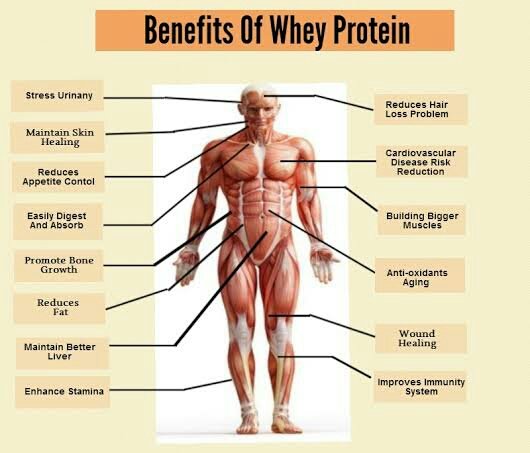whey protein. It's uses, benefits and side effects
Whey protein is one of the primary product or by product of dairy products. A byproduct of the cheese-making process, whey protein provides substantial amounts of the essential amino acids that are needed to carry out the functions that proteins perform in the body.
Whey protein — typically in the form of a powder — can be added to liquids or soft foods, such as applesauce, or blended with ice and fresh fruit to make a smoothie

Uses
The best-known use of whey protein supplements is for the purpose of increasing muscle mass and strength
Building blocks: It provides protein and amino acids, which serve as building blocks for increased muscle growth.
Fast absorption: Whey protein is absorbed and utilized very quickly compared to other types of protein
Benefits
Whey is an Excellent Source of High-Quality Protein. ...
Whey Protein Promotes Muscle Growth. ...
Whey Protein May Lower Blood Pressure. ...
Whey Protein May Help Treat Type 2 Diabetes. ...
Whey Protein May Help Reduce Inflammation.

side effects
Some people who are allergic to milk may be specifically allergic to whey. In moderate doses, whey protein does not typically cause any adverse events. However, consuming very high doses can cause:
stomach pains
cramps
reduced appetite
nausea
headache
fatigue
Consistent high doses of whey protein may also cause acne. From a nutritional point of view, whey protein is very unusual and does not have a natural equivalent.
.jpeg)